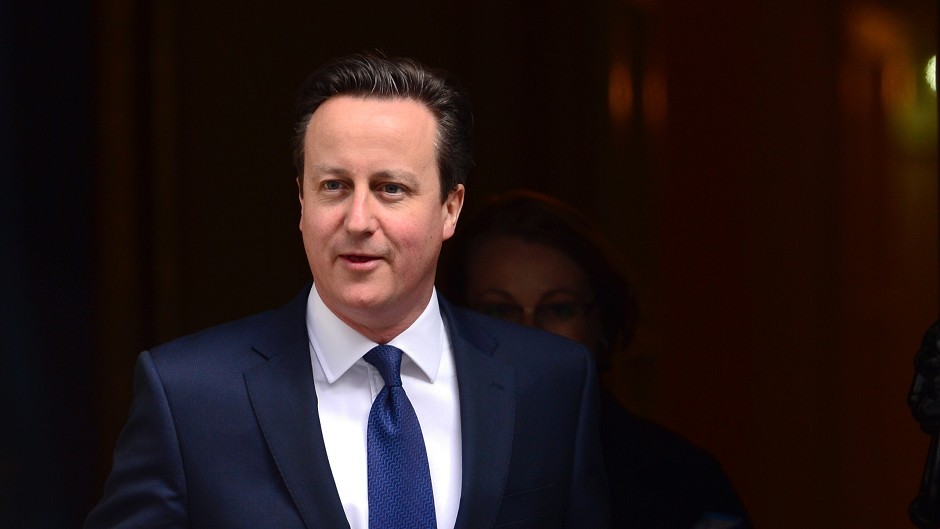David Cameron sparked a war of words today after claiming Alex Salmond had taken Labour “hostage” and was demanding a “ransom”.
The SNP surge loomed large at the final prime minister’s questions of the parliament, as the Conservative leader piled pressure on the opposition over a potential power-sharing deal with the Nationalists.
Tory strategists believe the prospect of a greatly enlarged SNP group holding sway over a Labour government will boost support for Mr Cameron south of the border at May’s election.
Former First Minister Mr Salmond, who is aiming to return to Westminster as MP for Gordon, raised the tensions further this week by promising that the SNP would join forces with Labour to vote down a minority Conservative administration.
Mr Cameron, whose wife and children were watching from the Commons gallery, also turned up the rhetoric in what could have been his final Commons debate as prime minister today.
“As far as I can see, Alex Salmond has taken the entire Labour party hostage, and today we have got the ransom note,” he said.
“The ransom note is very clear. It says, ‘higher borrowing, uncontrolled immigration, unfettered welfare, higher taxes and weaker defence’.
“That is what is being demanded, and the British people have only one way of saying no to this appalling hostage situation, which is to vote Conservative on May 7.”
Mr Cameron continued the attack later in the exchanges, after Labour’s Stephen Pound branded him a “lame duck” over his announcement this week that he would not seek a third term at 10 Downing Street.
The Tory leader said: “I will tell the honourable gentleman what is a lame duck—trying to get into Downing street on the back of Alex Salmond’s coat tails.”
Turning to Ed Miliband, he added: “Never mind talk of ducks; I am looking at Alex Salmond’s poodle”.
The Labour leader had earlier highlighted Mr Cameron’s decision to “announce his retirement plans”.
However, Mr Miliband walked into a trap when the prime minister immediately ruled out a future rise in VAT, after being challenged by the opposition leader in his first question.
Mr Miliband responded: “Nobody believes the right honourable gentleman’s promises.
“He has had five years of failing working families, with worse to come—more spending cuts, more tax cuts for the richest, more betrayal.
“This has been a government of the few for the few. It is time for a better plan. It is time for a Labour government.”
Speaking after PMQs, SNP Westminster leader Angus Robertson criticised Mr Cameron’s decision to use language such as “ransom” and “hostage” to describe the rise in the party’s support.
“These comments by David Cameron were crass and tasteless,” the Moray MP said.
“If a majority of MPs in the House of Commons after the general election – comprising members from all parts of the UK – do not want another Tory government, then the democratic position according to Westminster’s own conventions is that there will not be a Tory government.”
Scottish Secretary Alistair Carmichael, the Liberal Democrat MP for Orkney and Shetland, blamed Mr Salmond.
“It’s the sort of rhetoric you see in an election campaign. It has to be said that Alex Salmond’s rhetoric rather invites that escalation. Ultimately none of it is particularly helpful,” he said.
